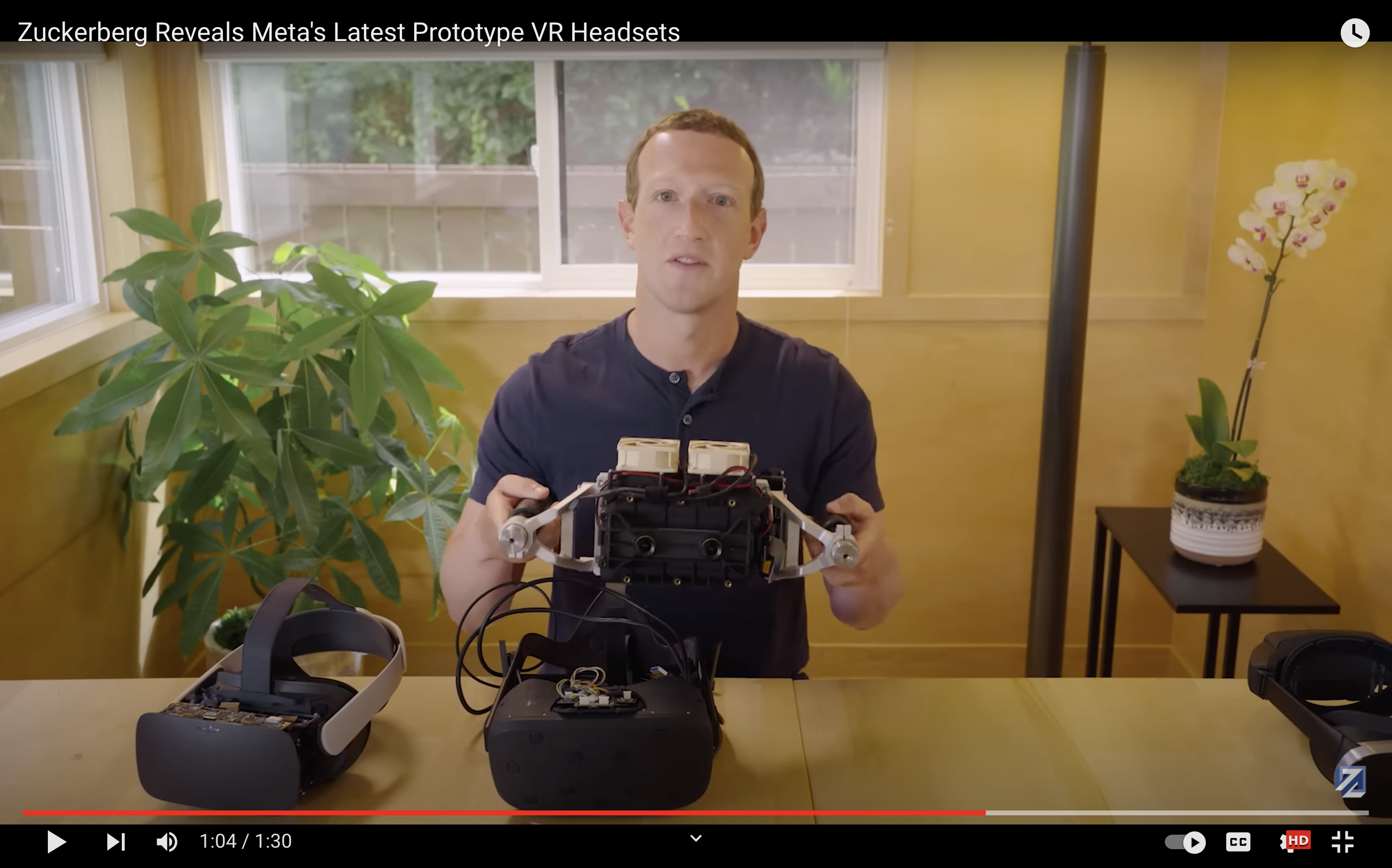Photo: amnx
By: Nick Gambino
Meta (or Facebook if you’re not up on tech conglomerates) has been hard at work in the VR space since acquiring Oculus in 2014. Since then, they’ve done away with the Oculus name and released several VR headsets like the Quest 2.
The company is dead set on creating a lightweight, yet powerful VR headset that rivals anything that’s come before it. The reason is two-fold. One, VR is a great gimmick, but it’s failed to see widespread adoption. And two, Meta (as their new name suggests) are going all-in on the metaverse.
At a virtual roundtable just last week, Mark Zuckerberg and friends showed off a number of prototypes they are currently working on in their R&D department. They don’t necessarily plan on releasing all those headsets, at least not all at once, so why so many?
Well, each prototype is meant to show off one feature. For example, one showed off a high-res screen, while another exists to showcase a bright backlight.
“I think we’re in the middle right now of a big step forward towards realism,” Zuckerberg said. “I don’t think it’s going to be that long until we can create scenes with basically perfect fidelity.”
Translation: Stuff’s about to get real. The CEO says he wants VR tech that can pass the virtual Turing Test. That’s basically the point where you can’t distinguish reality from virtual reality. Is that something we want? In theory, sure. Of course, that’s the goal of VR, but what that means for the user’s health, I don’t know.
The question of fidelity I think is less important than the physical dimensions of the headset itself. VR worlds are pretty solid as they stand but wearing the headset for any length of time is a burden. That alone I think will cripple adoption.
Meta is going to keep trying to crack both the physical and virtual world. As part of the roundtable, it was revealed that the Cambria headset will ship later this year. This is the high-end headset announced in 2021 that allows for both VR and mixed reality with unparalleled immersion.








